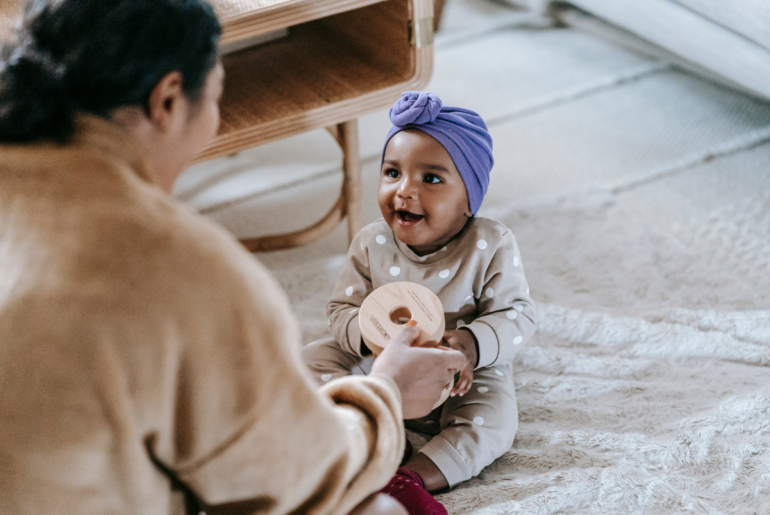A study by Washington University in St. Louis has revealed surprising new evidence that kindness towards others starts as early as babyhood. In fact, over 80 percent of the babies under one year old in the study group exhibited kindness through helping.
Researcher Rose Donahue, PhD, and her team studied the behavior of a group of babies between 11 and 20 months old to observe their responses to someone in need of help. A researcher would model a task for each child, then repeat the task but with some difficulty completing it.
For example, after modeling stacking blocks, the researcher might indicate they couldn’t reach a piece they needed to complete the task. The baby could help by either handing the block to the researcher or stacking it for them.
The research team observed whether the babies attempted to provide assistance, whether they needed additional prompting to provide assistance, what type of help they provided, and how much time passed before they helped. The results showed that over 80 percent of the babies attempted to help the researcher, and very few of them needed prompting.
How can I foster kindness in my child?
Donohue believes this study shows that babies are already developing preferences about how they like to show kindness to others. Parents can lean into these preferences by offering their kids ways to help that are within their cognitive and physical capabilities, and through modeling kind behavior themselves.
Here are some other ways to encourage your child to be kind—
- Be specific when offering praise: Teach them exactly how their kindness positively impacted others. For example, if they clean up their toys, instead of saying, “Thank you!” instead try saying something like, “That was thoughtful of you to put away your toys. It made our living room look so nice! Thank you.”
- Encourage small acts of kindness: Modeling and encouraging small gestures of kindness can help meet kids where they are, and allows them to practice kindness in simple ways that are easy for them to access
- Volunteer together: Participating in a neighborhood clean-up, donating your time to a food bank or soup kitchen, or finding other family-friendly volunteer opportunities can help your child experience the good feelings that come along with helping strangers, and encourage them to help others whenever they see an opportunity.
- Remember kind self-talk: Being kind to ourselves is also important! Model speaking kindly about yourself to your child, and be sure to correct them if you hear them saying negative things about themselves. You can say, “Would you say that to someone you love? Let’s think of something kinder you can say instead.”







